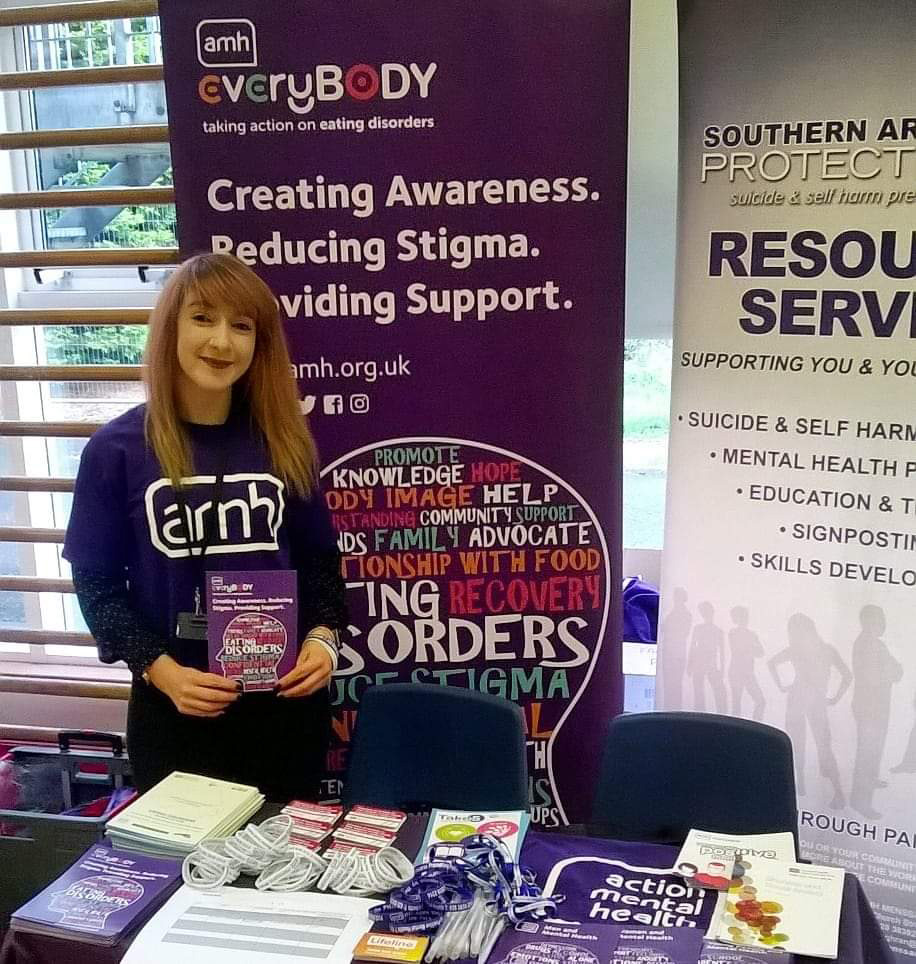
Eating disorders are highly complex psychological illnesses that can develop for myriad reasons. They can arise from a complex interaction of biological, psychological and social factors and what triggers an eating disorder in one person can be very different to the trigger for another, according to everyBODY Project Worker Deborah McCready.
Few people who develop eating disorders will experience the same symptoms. Similarly, different treatments work for different people and recovery lengths vary. Eating disorders can be seen as a way of coping with emotional distress, or as a symptom of underlying issues.
Eating disorders are characterised by varied disordered eating behaviours such as:
An eating disorder can be very destructive, both physically and emotionally, and people can get trapped into the destructive cycle of the eating disorder without knowing how to cope with it. An eating disorder is not just about food and weight, but also about a person’s sense of who they are.
Although the term ‘eating disorder’ is applied to a wide range of disordered eating behaviours, there are four main classifications: Anorexia Nervosa, Bulimia Nervosa, Binge Eating Disorder and Other Specified Feeding or Eating Disorder (OSFED). Just because somebody doesn’t fit in absolutely with one particular category doesn’t mean they don’t have an eating disorder. A large number of people with eating disorders don’t fit strictly into one category but fluctuate between the three and may be diagnosed with OSFED.
ANOREXIA NERVOSA
BULIMIA NERVOSA
BINGE EATING DISORDER
PEOPLE EXPERIENCING AN EATING DISORDER MAY
ADVICE ON HOW TO HELP A LOVED ONE SUFFERING FROM AN EATING DISORDER
If you are worried about someone’s eating behaviors or attitudes, it is important to express your concerns in a loving and supportive way. It is also necessary to discuss your worries early on, rather than waiting until they have endured many of the damaging physical and emotional effects of eating disorders.
Approaching the subject of an eating disorder can be a daunting prospect. Remember that recovery is so much more difficult in an atmosphere of secrecy and denial, and the disorder will not go away by itself. Talking about it can be an essential first step
What to Say – Step by Step
Set a time to talk. Set aside a time for a private, respectful meeting with them to discuss your concerns openly and honestly in a caring, supportive way. Make sure you will be some place away from other distractions.
Talk to them one to one. If other people are around it people feel like you’re ganging up on them.
Communicate your concerns. Share your memories of specific times when you felt concerned about their eating or exercise behaviors. Explain that you think these things may indicate that there could be a problem that needs professional attention.
Ask them to explore these concerns with a GP, counsellor, doctor, nutritionist, or other health professional that is knowledgeable about eating issues. If you feel comfortable doing so, offer to help them to make an appointment or accompany them on their first visit.
Avoid conflicts or a battle of the wills with them. If they refuse to acknowledge that there is a problem, or give any reason for you to be concerned, restate your feelings and the reasons for them and leave yourself open and available as a supportive listener.
Have some information about eating disorders to hand. They may not feel ready to talk or share with you yet but if they can go away with information to read that helps them to recognise they may need help, they are more likely to come forward when they’re ready to ask for support.
Avoid placing shame, blame, or guilt on them regarding their actions or attitudes. Do not use accusatory “you” statements like, “You just need to eat.” Or, “You are acting irresponsibly.” Instead, use “I” statements. For example: “I’m concerned about you because you refuse to eat breakfast or lunch.” Or, “It makes me afraid to hear you vomiting.”
Be aware that they’re likely to be feeling embarrassed, shamed and scared. Acknowledge that this must be difficult for them and reassure them that you aren’t there to judge, but to support.
Avoid giving simple solutions. For example, “If you’d just stop, then everything would be fine!”
Express your continued support. Remind them that you care and want them to be healthy and happy.